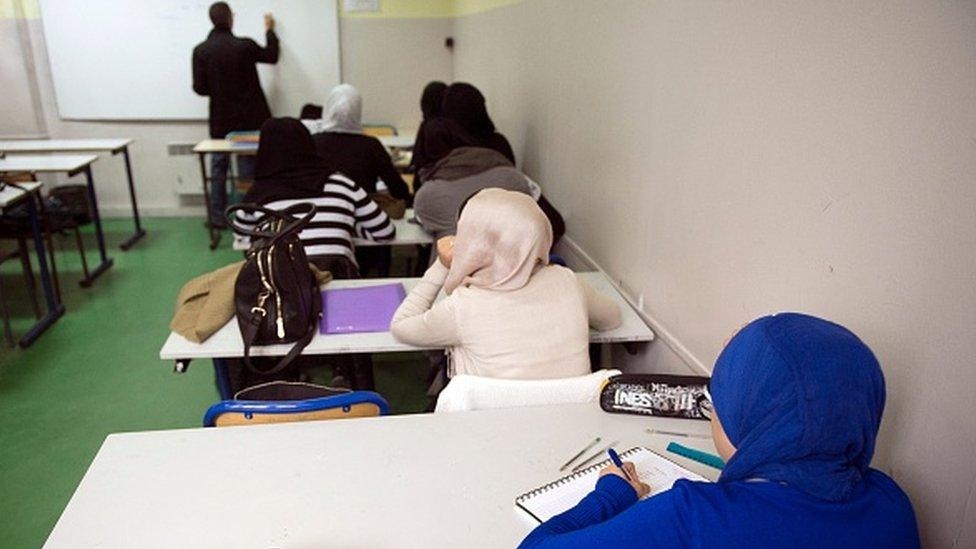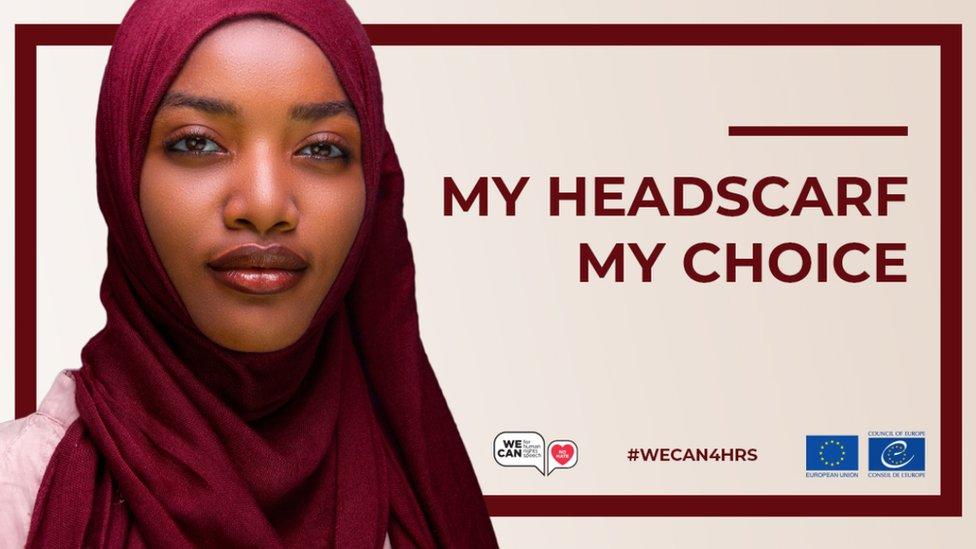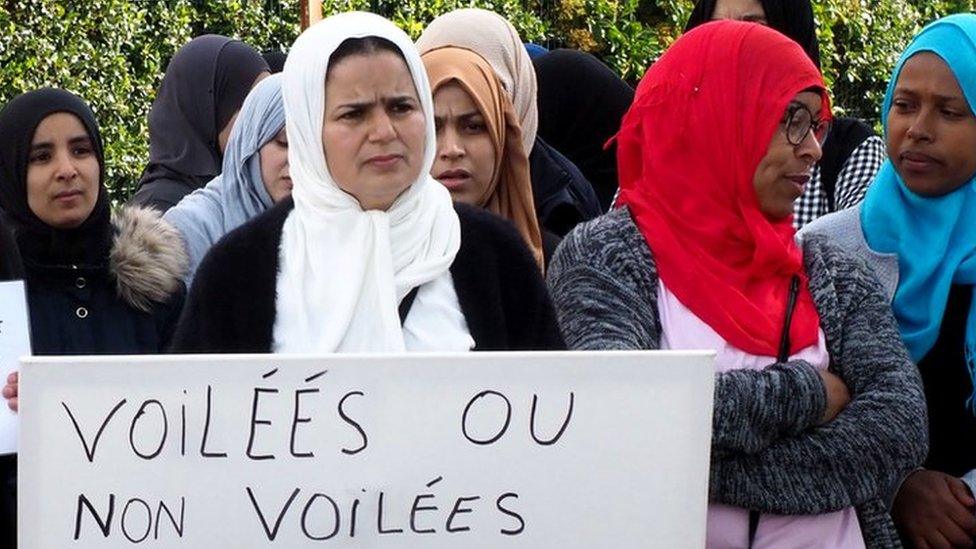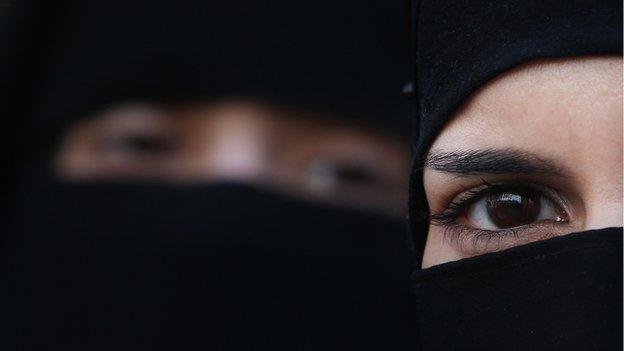France to ban female students from wearing abayas in state schools
- Published

Pupils will be banned from wearing abayas, loose-fitting full-length robes worn by some Muslim women, in France's state-run schools, the education minister has said.
The rule will be applied as soon as the new school year starts on 4 September.
France has a strict ban on religious signs in state schools and government buildings, arguing that they violate secular laws.
Wearing a headscarf has been banned since 2004 in state-run schools.
"When you walk into a classroom, you shouldn't be able to identify the pupils' religion just by looking at them," Education Minister Gabriel Attal told France's TF1 TV, adding: "I have decided that the abaya could no longer be worn in schools."
The move comes after months of debate over the wearing of abayas in French schools.
The garment is being increasingly worn in schools, leading to a political divide over them, with right-wing parties pushing for a ban while those on the left have voiced concerns for the rights of Muslim women and girls.
"Secularism means the freedom to emancipate oneself through school," Mr Attal told TF1, arguing the abaya is "a religious gesture, aimed at testing the resistance of the republic toward the secular sanctuary that school must constitute."
He said that he would give clear rules at the national level before schools open after the summer break.
In 2010, France banned the wearing of full face veils in public which provoked anger in France's five million-strong Muslim community.
France has enforced a strict ban on religious signs at schools since the 19th Century, including Christian symbols such as large crosses, in an effort to curb any Catholic influence from public education.
It has been updating the law over the years to reflect its changing population, which now includes the Muslim headscarf and Jewish kippa, but abayas have not been banned outright.
Dominique Schnapper on state secularism in France
The debate on Islamic symbols has intensified since a Chechen refugee beheaded teacher Samuel Paty, who had shown students caricatures of the Prophet Mohammed, near his school in a Paris suburb in 2020.
The announcement is the first major policy decision by Mr Attal, who was appointed France's education minister by President Emmanuel Macron this summer at the age of 34.
The CFCM, a national body representing many Muslim associations, has said items of clothing alone were not "a religious sign".
Related topics
- Published3 November 2021

- Published17 October 2019

- Published31 May 2018
